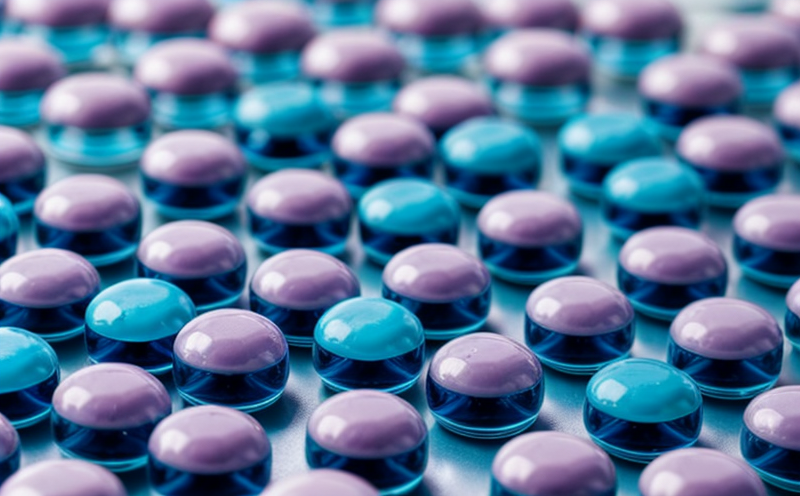WHO GMP Microbiological Monitoring in Drug Manufacturing
The World Health Organization (WHO) Guidelines on Good Manufacturing Practice (GMP) provide stringent requirements to ensure that pharmaceutical products are consistently produced and controlled according to quality standards. In the context of pharmaceutical microbiology, WHO GMP emphasizes the importance of monitoring microorganisms during drug manufacturing to prevent contamination, ensure product safety, and maintain compliance with regulatory bodies like the FDA and EMA.
Microbiological monitoring is critical in preventing microbial contamination in drug production environments. Contamination can lead to potential health risks for patients using these drugs, as well as significant financial losses due to recalls or production halts. This service ensures that all aspects of the manufacturing process are free from harmful microorganisms and meets international standards.
The primary objective of WHO GMP microbiological monitoring is to provide a robust framework for preventing contamination through comprehensive sampling strategies, testing methodologies, and data analysis techniques. By adhering to these guidelines, manufacturers can ensure their products meet stringent quality control requirements and comply with global regulatory expectations.
Our laboratory uses advanced analytical techniques such as quantitative PCR (qPCR), culture-based methods, and molecular fingerprinting to identify and quantify microorganisms present in drug manufacturing environments. These tests are designed to detect even trace amounts of contaminants, ensuring the highest level of product purity.
The process begins with meticulous sampling from various points within the production facility, including raw material storage areas, processing equipment, packaging lines, and final product samples. Each sample undergoes rigorous analysis using validated protocols based on international standards like ISO 14695:2019 for cleanroom classification.
Once analyzed, our laboratory provides detailed reports outlining the presence of any detected microorganisms along with their concentrations. These results are then interpreted against established thresholds defined by WHO GMP guidelines to determine whether corrective actions need to be taken. If contamination is identified, we offer guidance on implementing appropriate measures to eliminate sources of contamination and revalidate relevant areas.
By partnering with us for WHO GMP microbiological monitoring services, your organization can gain peace of mind knowing that every step of the manufacturing process adheres strictly to strict regulatory requirements. This not only enhances patient safety but also protects brand reputation and ensures long-term business success.
| Sample Location | Testing Methodology | Result Interpretation |
|---|---|---|
| Cleanroom Air Sampling | Settling Plate Technique | Quantification of air-borne particulates |
| Surface Swabbing | Mendes Medium Incubation | Detection and identification of bacteria/fungi |
| Raw Material Inspection | qPCR Analysis | Quantification of specific microbial species |
| Finished Product Testing | Culture-Based Methods | Confirmation of sterility or presence of allowable limits |
Applied Standards
The World Health Organization (WHO) sets forth comprehensive guidelines for Good Manufacturing Practice (GMP), which form the foundation for microbiological monitoring in pharmaceutical manufacturing. These guidelines are internationally recognized and ensure that drugs produced meet high standards of quality, safety, and efficacy.
- ISO 14695:2019 – This standard provides a framework for maintaining cleanroom environments suitable for pharmaceutical production. It specifies air filtration requirements, particle counting procedures, and other essential factors necessary to prevent microbial contamination.
- ASTM E2338-17 – This method establishes protocols for microbiological monitoring using culture-based techniques, which are particularly useful in detecting low levels of microorganisms.
- IEC 60529:2013 – Although primarily focused on protection ratings for electrical enclosures, this standard also provides insights into maintaining sterile conditions within enclosed spaces during manufacturing processes.
Our laboratory adheres strictly to these standards when performing WHO GMP microbiological monitoring. By doing so, we ensure that our services meet the highest levels of accuracy and reliability expected by regulatory authorities worldwide.
Industry Applications
- Pediatric Drug Manufacturing: Ensuring that medications intended for children are free from harmful bacteria or fungi is crucial. Our microbiological monitoring helps maintain the highest standards of safety and efficacy in this sensitive field.
- Biopharmaceutical Production: For complex biologic drugs, even minor contamination can lead to severe side effects. Our comprehensive testing ensures that these life-saving treatments are safe for patients.
- Vaccine Development: Vaccines must be produced under stringent conditions to guarantee their effectiveness and prevent adverse reactions. Microbiological monitoring plays a vital role in this process by ensuring vaccines remain uncontaminated throughout production.
| Application Area | Microbial Concerns | Safety Considerations |
|---|---|---|
| Pediatrics | Bacteria, yeasts, molds | Avoiding cross-contamination and ensuring sterility |
| Biopharmaceuticals | Viral contaminants, bacterial endotoxins | Maintaining aseptic conditions throughout production |
| Vaccines | Bacterial toxins, fungal spores | Guaranteeing product integrity and purity |
Why Choose This Test
- Comprehensive Sampling Strategy: Our laboratory collects samples from multiple locations within the manufacturing facility, covering raw materials, processing equipment, packaging lines, and final products. This ensures no corner is left unturned when it comes to identifying potential sources of contamination.
- Advanced Analytical Techniques: Utilizing cutting-edge technologies such as qPCR, culture-based methods, and molecular fingerprinting allows us to detect even trace amounts of microorganisms with precision.
- Data Interpretation Expertise: Our team of experienced microbiologists interprets the results against established thresholds defined by WHO GMP guidelines. We provide actionable insights that help you implement corrective actions promptly if needed.
- Regulatory Compliance: By adhering strictly to international standards like ISO 14695:2019 and ASTM E2338-17, our services ensure that your manufacturing processes meet all necessary regulatory requirements.
The WHO GMP microbiological monitoring service offers more than just testing; it provides a proactive approach to maintaining product quality and ensuring compliance with stringent regulations. Choose us for peace of mind knowing that every aspect of your drug manufacturing process is thoroughly examined and safeguarded against microbial contamination.





